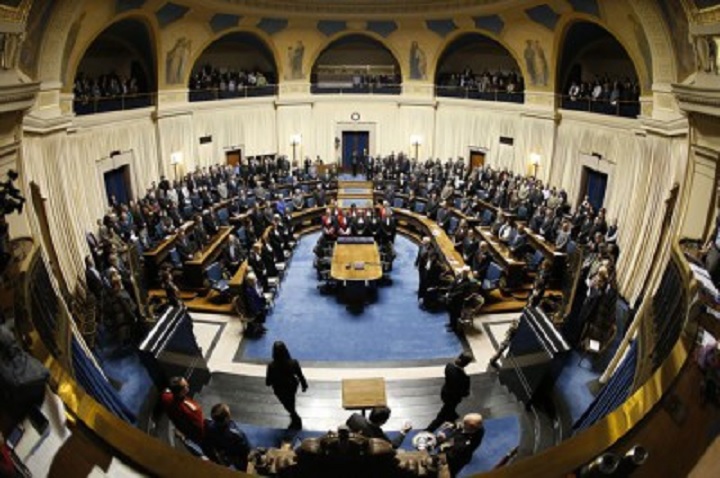WINNIPEG – Manitoba Finance Minister Greg Dewar said Monday he was disappointed to learn the province will only receive a 2.2 per cent increase in federal transfer payments next year. And he would not rule out provincial tax increases to add more revenue.

“This is a very modest increase, just over the rate of inflation and … we still have to cover our growing health-care costs, and family services and support to families,” Dewar said from Ottawa, where he was meeting with his counterparts from across the country.
“All provinces just received the information … and we’re on our way back to Winnipeg now and we’re going to crunch those numbers and make a decision later,” he said when asked about the possibility of tax increases.
Like other provinces, Manitoba is to receive six per cent more for health care and three per cent more for social programs under a fixed formula for federal transfer payments.
Where Manitoba will see a cut is in equalization payments, which are designed to help poorer provinces offer similar levels of service as richer ones. Manitoba is the only western province to receive equalization payments, largely due to its comparative lack of resources such as oil and natural gas.
Manitoba is set to receive just over $1.7 billion in equalization payments next year, a drop of $12 million from the current year.
Equalization levels fluctuate every year because payments are based on a complex formula that measures the fiscal capacity of each province. Manitoba’s slow-but-steady economy has been growing at a rate at or above the national average in recent years, so its equalization payments have dropped. Ontario started receiving equalization payments in 2009 as a result of the recession, and is seeing its share grow.
Dewar pointed out federal transfers make up a smaller portion of provincial revenues than they did in the 1990s. But, he added, it is getting harder to stretch the federal support to meet all the public’s needs.
“We have to make up that difference and we’re making it up with our own in-source revenues, and it’s becoming more and more of a challenge for Manitoba to do that.”



Comments